On August 30, the Industry-University-Research Collaboration Symposium on Sustainable Development of the 2023 China-ASEAN Education Cooperation Week (CAECW) was held at the Baihua Hall on the second floor of the CAECW permanent site. This symposium was hosted by Tianjin University and Mahidol University in Thailand, with Guizhou University serving as the organizing institution.
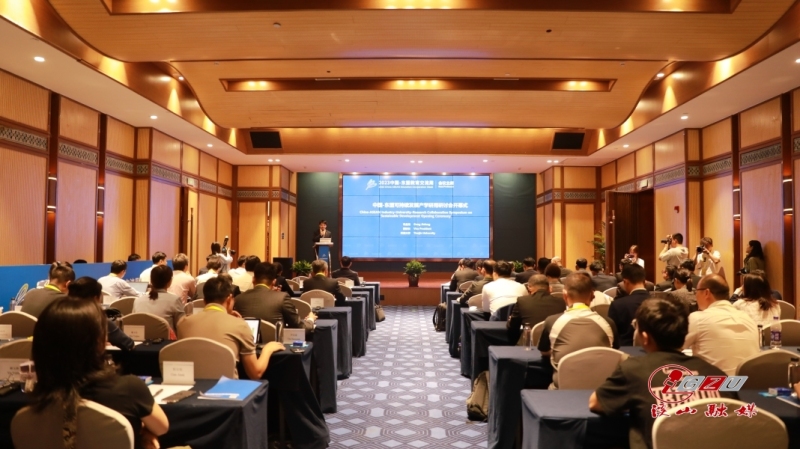
Distinguished attendees of the symposium included Jia Peng, Deputy Director General of the Department of International Cooperation and Exchanges at the Ministry of Education, Liu Baoli, Executive Secretary-General of the Organizing Committee of the CAEWC, Li Yaying, Deputy Director of the Education, Culture and Tourism Division (ECTD) of the ASEAN-China Centre (ACC), Li Jian, Counsellor at the Indonesian Embassy in China, Singhalath Boupha, Third Secretary of the Lao Embassy in China, Allen Carillo, Third Secretary and Vice Consul of the Philippine Embassy in China, Yang Xianjin, Secretary of the Party Committee of Tianjin University, and Zhang Dalin, Vice President of Guizhou University. The symposium also hosted foreign guests from ASEAN universities and representatives from domestic institutions. Gong Jinlong, Vice President of Tianjin University, presided over the symposium.
Yang Xianjun provided an overview of Tianjin University, including its history, discipline development, and research accomplishments. He highlighted Tianjin University’s active role in promoting the establishment of the “China-ASEAN Network of Engineering and Technology Universities”, which has expanded to include 26 universities in 8 countries. He pointed out that the primary goal of this symposium is to convene talents and experts to discuss the United Nations’ 2030 Sustainable Development Goals and address cutting-edge issues regarding the development of the China-ASEAN region. The symposium serves as a platform for sharing and promoting solutions for sustainable development with industrial, academic, and research communities of various countries. He expressed confidence that this symposium would yield high-quality results and contribute to the creation of a more innovative, inclusive, and sustainable China-ASEAN education community.
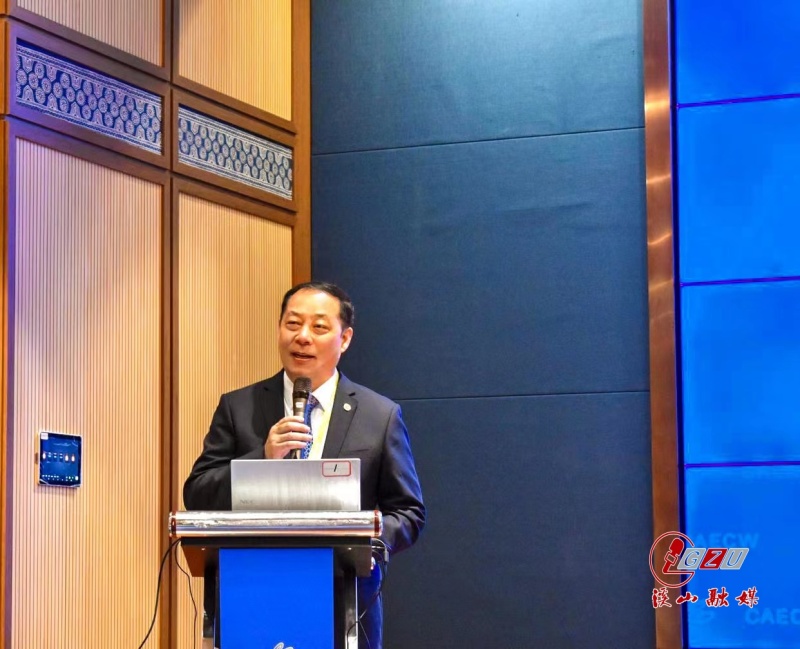
Li Yaying stressed that 2023 marks the 20th anniversary of China’s accession to the “Treaty of Amity and Cooperation in Southeast Asia”. China and ASEAN countries have continuously strengthened mutual trust and cooperation across multiple fields at various levels, resulting in remarkable achievements. She expressed her optimism that experts at the symposium would actively explore and develop diverse forms of industrial cooperation and various methods of university-enterprise cooperation, making a positive contribution to regional development.
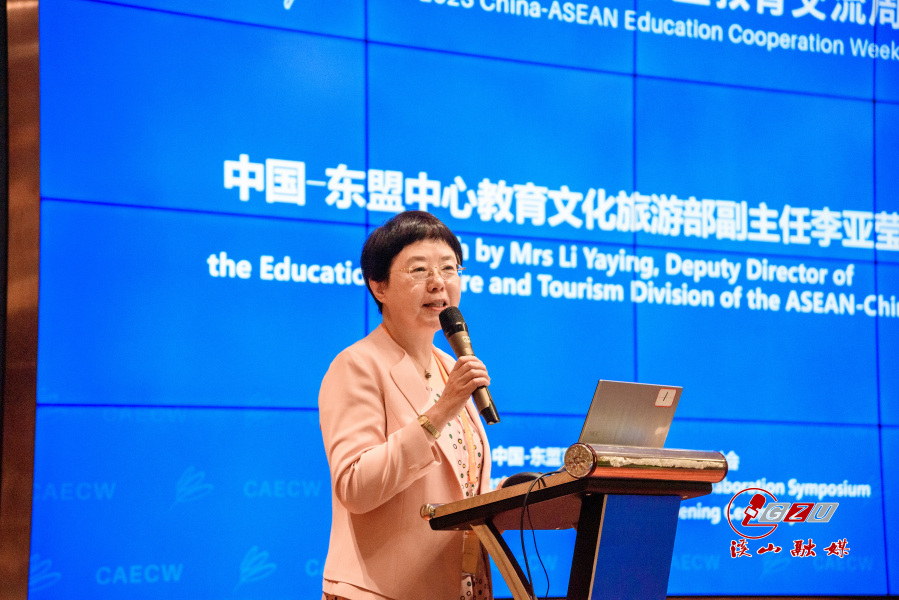
Jia Peng emphasized that the “China-ASEAN Network of Engineering and Technology Universities” will further deepen cooperation in higher education between China and ASEAN countries, giving a full play to the leading role of higher education in the “Belt and Road” initiative. He also believed that this meaningful network will facilitate the integration of industry and education, as well as science and education. It will play a crucial role in nurturing engineering talents and, in the long run, contribute to the establishment of more closely-knit China-ASEAN community with a shared future.
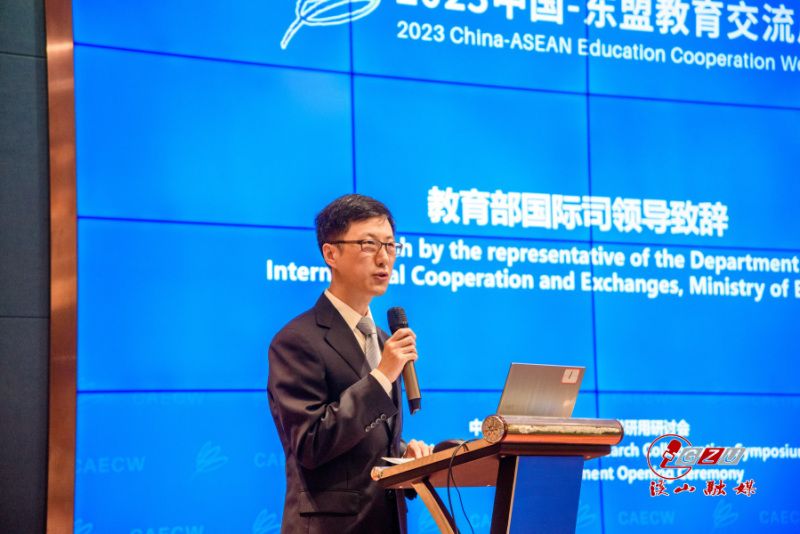
Zhang Dalin briefly introduced the founding history and discipline construction and development of Guizhou University. He underlined that this symposium would serves as a comprehensive platform for summarizing new practices, achievements, and contributions from various countries in the production, learning, research and utilization aspects of sustainable development. It is also expected to promote mutual learning and cooperation between China and ASEAN countries in this field. He stressed Guizhou University’s firm commitment to promoting technological innovation, expanding diverse cooperation, strengthen exchanges and partnerships with ASEAN and domestic counterparts. Furthermore, the university will continuously enhance the transformation and industrialization of relevant scientific and technological achievements, actively contributing to national and regional development strategies.
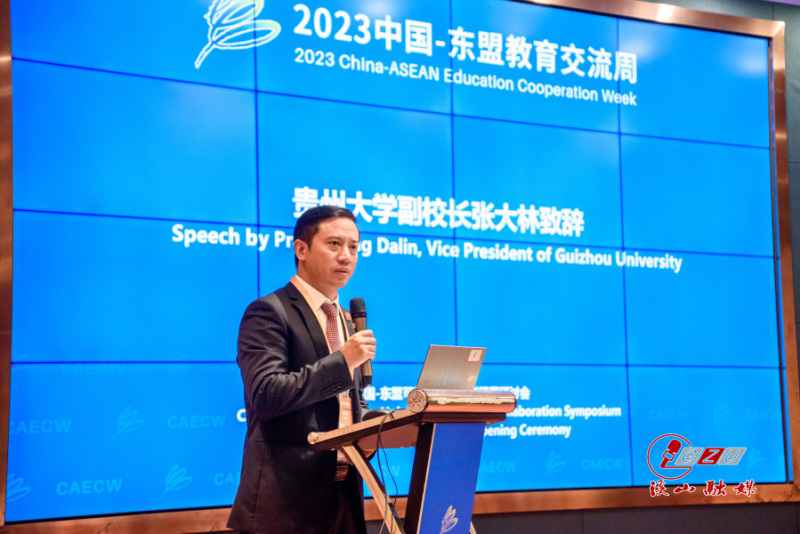
Li Jian underscored that this symposium offers a collaborative platform that brings together experts, enterprises, and universities. It is expected to facilitate breakthroughs in innovative research, support the transformation of scientific and technological achievements, contribute to balanced industrial development, and promote the development and prosperity of both China and ASEAN countries.
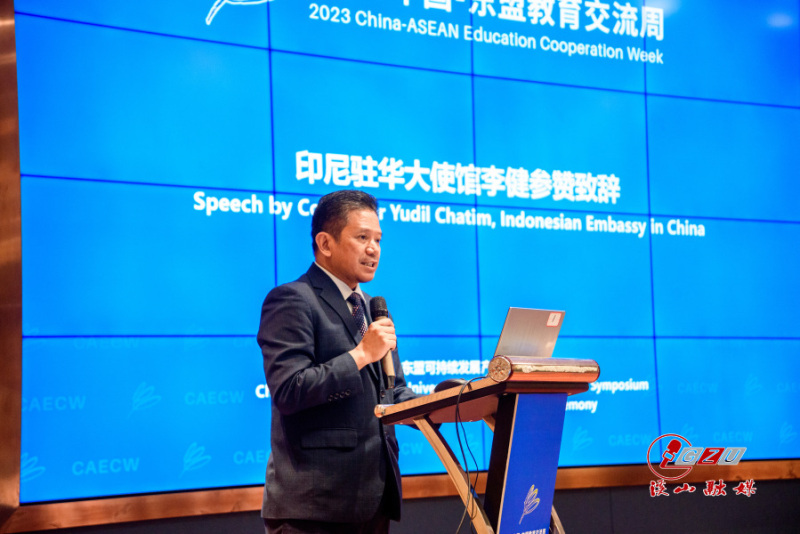
Liu Baoli emphasized that the “China-ASEAN Network of Engineering and Technology Universities” is expected to broaden its “friendship circle” by incorporating more ASEAN partner countries and attracting more high-quality educational resources. He also suggested the organization of multi-level, multi-dimensional, and multi-field exchange activities to create an academic community of practical cooperation.
The symposium focused on the themes of “Environmental Safety and Agricultural Sustainable Development” and “Universities Helping Cities Transition from Low Carbon to Carbon Neutrality”. Discussions also covered many topics of technological and societal significance, such as “Contamination and Transmission of Antibiotic Resistance Genes in Agricultural Environments”, “Detection and Identification of Microbial Antibiotic Resistance in Animal Production Environments”, “Construction of Carbon Data Information Management Platform for Zero-Carbon Campuses”, and “Curriculum System for Green Low-Carbon Campuses and Low-Carbon Development in Campuses”. Thirteen experts and scholars delivered keynote speeches and presentations, sharing their research findings and insights in these cutting-edge areas.
Zhou Shaoqi, Vice President of GZU, delivered a presentation titled “Research Progress on Karst Rural Wastewater Treatment Technology” via online video. He elaborated on the progress of Karst rural wastewater treatment technology and its application from four aspects: an overview of pollution prevention and control technology in rural areas, town-level rural wastewater treatment technology and its application, village-level rural wastewater treatment technology and its application, and household-level rural wastewater treatment technology and its application. His research is anticipated to offer valuable technical support for rural wastewater treatment and resource utilization, rural revitalization, and the management of eutrophication in rural rivers and lakes.
Editor: Pang Aizhong, Han Xiaomei
Chief Editor: Li Xufeng
Senior Editor: Yang Nan
Translator: Jia Haibo